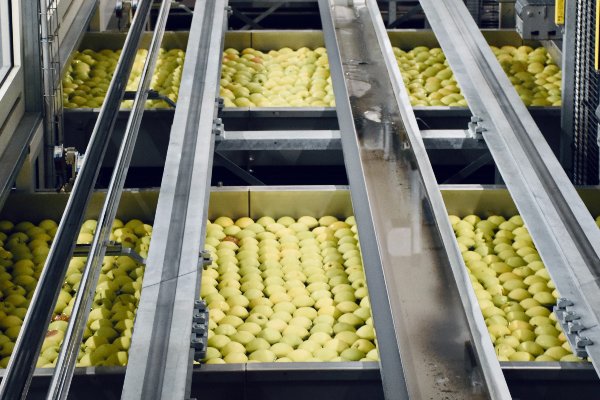This article first appeared in our World Environment Day issue of My Green Pod Magazine, published on 02 June 2022. Click here to subscribe to our digital edition and get each issue delivered straight to your inbox
Many of us want to buy food that’s better for the planet, but making informed choices isn’t always straightforward.
Farming systems, supply chains, water use, air miles and packaging are just some of the many things to consider when looking for sustainable food – and they’re not easy to analyse in a supermarket when you’re in a rush and your mind is on other things.
A good first step is to buy as much produce as possible that’s local, seasonal and organic – but for Carl Olivier, co-founder and CEO of Sustained, this approach doesn’t go far enough.
‘It may be easier to shop that way’, Carl says, ‘but given the complex nature of production processes, and the broad nature of the impacts on our environment, it’s not the best. We need to find a way to surface and translate all the underlying complexity.’
Consumers influence production
Food production causes more than one-third of all environmental damage, from CO2 emissions
to biodiversity loss. The industrial scale of the production of certain food types is driving even more damage.
‘This needs to stop’, Carl says; ‘we need to find better ways to feed ourselves as a species. If enough of us change what we eat, by choosing more environmentally friendly foods more often, the demand will change the supply. All of a sudden the saying ‘vote with your wallet’ takes on
massive significance.’
There is a wealth of evidence to support the idea that people want to buy more sustainable food; the People’s Climate Vote from the UN showed that food and the impact of food production was one of the most supported areas for investment.
Spending habits are another indicator, with annual ‘ethical’ spending and investment in the UK surpassing the £100 billion mark for the first time in 2021. This is a five-fold increase over 10 years.
‘People, on the whole, don’t want to harm the planet if they can help it’, Carl concludes. ‘The problem is that we are busy and we need help to make sense of complex processes before we can make informed decisions.’
Data transparency
The lack of clear, actionable information about the sustainability of various foods compounds the problem, especially when we consider the importance of presenting clear details to shoppers at the point of sale.
In order to help address this, producers, brands and manufacturers need to become far less opaque about the impact of their production processes.
By sharing data using industry-leading and standard frameworks – and transparently communicating the environmental impact of their products – companies can help their customers make the choices they want to make. This is good for business and for the planet.
Tech holds the key
For Carl, who has worked at Skype, Microsoft, Twilio and Zoopla, this is where technology has a key role to play. ‘We live our lives intertwined with digital experiences for almost everything – including buying our food’, he says. ‘Having seen first-hand the power technology has to help facilitate change at scale, we were inspired to create the app and the data and systems behind it, plus the tools producers need to increase their transparency.’
Building the infrastructure to allow companies to assess the environmental impact of their products at scale, in a recognisable and validated way, is essential if system-level change is to be realised in our lifetime.
These assessments are complex, based on varied and complicated supply chains and manufacturing processes.
Sustained provides the framework and the tools to translate this complexity into a form that is easy to understand and action by busy consumers. The framework uses a rating system from A (great) to G (bad) for a product. This rating is derived from a host of data used by Sustained in its calculations and assignments.
 Play Video about This Rock Might Just Save The World
Play Video about This Rock Might Just Save The World Play Video about Play 2 hours of rock
Play Video about Play 2 hours of rock Play Video about Play 2 hours of brook
Play Video about Play 2 hours of brook Play Video about Play 2 hours of sheep
Play Video about Play 2 hours of sheep











































